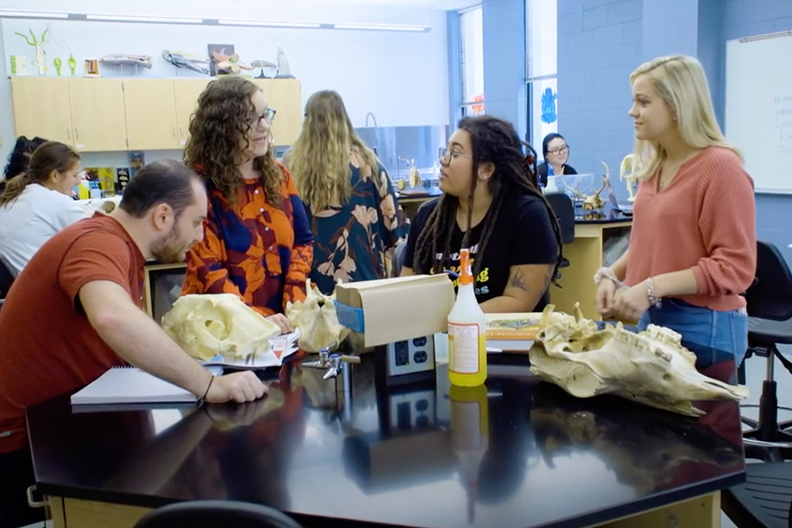 It’s no secret that college students are generally less likely to persist and succeed in STEM classes than in other disciplines. What’s more, women and underrepresented minorities are particularly affected by this trend.
It’s no secret that college students are generally less likely to persist and succeed in STEM classes than in other disciplines. What’s more, women and underrepresented minorities are particularly affected by this trend.
With the support of a grant from the National Science Foundation, Elmhurst University is planning to tackle that problem head-on. Announced in February, the nearly $300,000 grant will support professional development for part-time faculty in STEM fields with the goal of increasing student success.
“Part-time instructors teach introductory STEM courses, so they play an essential role in reducing equity gaps and increasing student success in STEM,” said Kimberly Lawler-Sagarin, associate dean of the faculty, associate professor of chemistry and the principal investigator on the project.
“But they don’t have as much access to professional development opportunities as the full-time faculty. They also might not know as much about our diversity and inclusion initiatives, or about all the ways students may access our rich tutoring and advising resources.”
So Lawler-Sagarin and her co-principal investigators—Tina Kazan, assistant dean for academic success and associate professor of English; Tom Sawyer, professor and chair of psychology; and Brian Wilhite, associate dean of the faculty and associate professor of physics—developed a training program to meet that need. The three-year program for part-time faculty, Adjunct Comprehensive Course to Enhance Student Success in STEM (ACCESS STEM), will combine training in teaching methods and STEM pedagogy with information about Elmhurst resources and even insights from psychological science.
“It’s a multipronged approach to providing a really comprehensive look at faculty development,” Lawler-Sagarin said. “The innovative part is that we’re combining STEM education support with diversity and inclusion, institutional support, and interventions from social and cognitive psychology.”
The first year of the three-year program consists of four seven-week modules on topics such as designing courses for inclusion, building resilience in students in STEM, and course-based undergraduate research experiences. Modules draw on faculty and staff across campus for specific expertise; for example, two staff members from the Learning Center will teach a session on helping students access tutoring, and Jasmin Robinson, director of diversity and inclusion programs, will lead one about microaggressions.
The program will launch in the fall with 15 part-time faculty participants (growing to 45 over the full three years). To gauge the program’s success, organizers will be looking at factors such as student grades, tutoring metrics and a sense of belonging among part-time faculty.
“The ultimate goal is to increase our students’ success, but we’d also like to learn something about how that happens,” Lawler-Sagarin said. “If our program is successful, we’ll be able to encourage other small schools to invest in comprehensive faculty development for their part-time faculty too.”